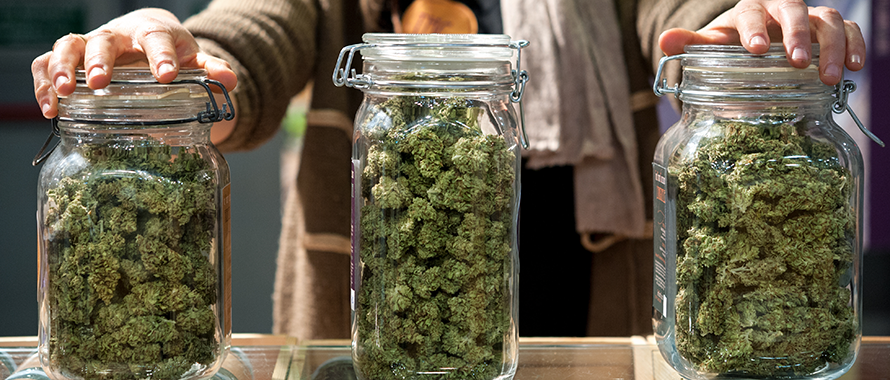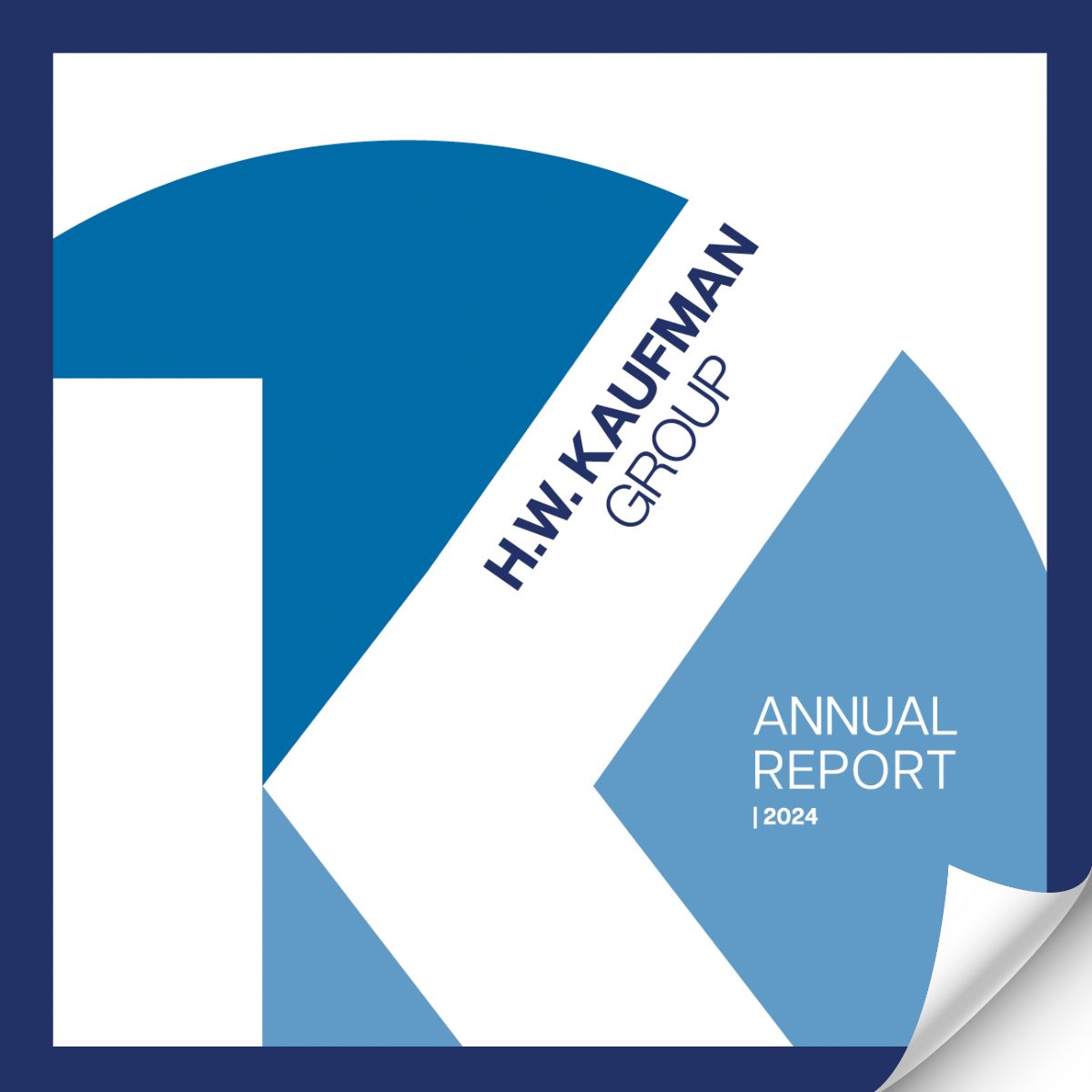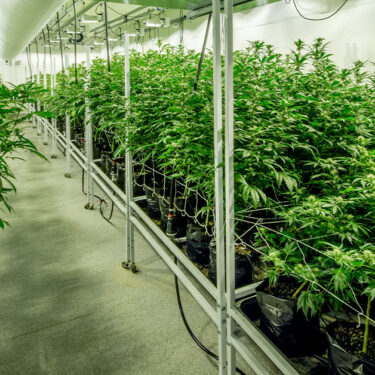A bill that would give cannabis businesses access to financial services was recently reintroduced in the U.S. House of Representatives and Senate. The Secure and Fair Enforcement (SAFE) Banking Act, which has bipartisan support, was passed in the House multiple times and could be voted on in the Senate this year, CNBC reported April 27.
Featured Solutions
“There is little to no banking for these companies,” said Jason Scheurle, National Product Leader, Cannabis, Burns & Wilcox, based in Philadelphia, Pennsylvania. “They are often holding more cash on hand than they would like to, and that obviously can attract some outside attention.”
Given the elevated risk, cannabis companies need to be particularly vigilant in their security practices and should review the theft coverage on their Commercial Property Insurance, Scheurle said. If the SAFE Banking Act passed, “the impact would be big,” he said.
“Other than the obvious benefit of being able to bank without the fear of punishment, there are other avenues affected by this as well,” Scheurle said. “Businesses may be able to take payment more readily if certain payment vendors were allowed to work with the dispensaries, for example. It could make everything more streamlined.”
Cannabis retailers face ‘high criminal attraction’
Lack of access to traditional banking services has been a pressing concern in the U.S. cannabis industry, with a 2022 survey by Whitney Economics showing that cannabis companies listed lack of access to banking as their top challenge. While the laws are different in Canada, banking access has been an obstacle in some cases there, as well; in February, cannabis companies filed a class-action lawsuit against several Canadian banks alleging financial discrimination over being denied accounts or having their accounts closed, DailyHive Canada reported.
Debate over banking access for American cannabis companies escalated in 2022 following “massive” spikes in cannabis business robberies in states like Washington and California, NPR reported in April of last year. Armed robberies of cannabis shops in Washington state reached a decade high in 2022 with at least 100 armed robberies reported, according to a December article in The Chronicle.
“The cash notwithstanding, the product itself is a high criminal attraction anyway,” Scheurle explained. “We have seen it many times over with vandalism claims, smash-and-grab burglaries, and more. When you add the fact that they cannot access banking, that just makes it even worse.”

The cash notwithstanding, the product itself is a high criminal attraction anyway. … When you add the fact that they cannot access banking, that just makes it even worse.
Even cannabis businesses with access to banking services may have large amounts of cash on the premises, said Leena Malik, Senior Underwriter, Commercial Insurance, Burns & Wilcox, Toronto, Ontario.
“Break-and-enters are the most common peril we see from a retail perspective,” she said. “Even though we do have banks accepting payments here in Canada, it is not to say that individuals are not paying with cash. There is still that exposure at hand, which is why we recommend minimizing the cash left on the premises overnight and keeping any cash locked up.”
When a theft occurs, a company’s Commercial Property Insurance could cover the replacement of stolen product or cash and repairing physical damage done to the building itself. Policies may contain coverage limitations for theft, however, such as a sublimit of 10% of the full policy limits. “Some insurance carriers may apply severe sublimits or exclusions for theft in many cases,” Scheurle said. “Businesses need to be careful that there is not a form in there that says the policy is not covering theft.”
Under the SAFE Banking Act, financial institutions could no longer be penalized for working with cannabis companies and the funds associated with these businesses would not be considered proceeds from illegal activity, Forbes reported in January.
“The idea is that they need to allow more banks to do business with cannabis companies that are operating legally within the state,” Scheurle said. Without that access, “you are risking more crime and you are forcing more businesses to get creative with how they are managing their cash and how they are managing their risk.”
A ‘green rush’ reversal
The SAFE Banking Act’s reintroduction comes at a time when the cannabis industry is experiencing somewhat of a reversal from what was known as the “green rush,” when companies flocked to open businesses in states where cannabis was legalized, Scheurle said. The Washington Post reported in December of 2022 that supply was “flooding the market in several states,” according to economists, contributing to a struggling industry with many businesses on the brink.
“For a while, it seemed like every other day tons of operations were coming out of the woodwork because the industry was just budding and there was money all over the place. In some states, there may have been too many licenses and just not enough buyers,” Scheurle said. “A lot of them are struggling to sell everything, so that becomes a problem on several fronts. It can spoil, they are not making money and could have to close their doors, and it opens up a more pronounced theft issue. If criminals know you have extra flower that cannot be sold, they could potentially target it to steal.”
Oversupply has also been an issue in Canada, where some companies have been scaling back, laying off staff or closing facilities, Global News reported in January. “It is a very saturated market for retailers,” Malik said. “We did see a boom during COVID and now there are quite a few of them closing their doors, whether it is an individual who opened up three locations and is now down to one or someone who has had to shut their business down completely.”
As more cannabis businesses face financial uncertainty, other insurance policies could help transfer their risks. Commercial General Liability (CGL) Insurance can protect them in the event of third-party bodily injuries that occur on the premises, while Products Liability Insurance can respond to claims over harm caused by a product. Management liability concerns, meanwhile, could be addressed by Directors & Officers (D&O) Insurance or Professional Liability Insurance.
“We had what they called the ‘green rush,’ but now a lot of businesses are going bankrupt,” Scheurle said. “Did they have the appropriate Professional Liability Insurance in place? Are they bankrupt because of an error? Are they going to have a D&O Insurance claim over something like mismanagement? That is becoming more important as some of these businesses start to struggle.”
While eventual approval of the SAFE Banking Act would be a relief for the cannabis industry, its impact on Cannabis Insurance is likely to be minimal — though it could help alleviate insurance carriers’ concerns over theft to an extent. “It would certainly ease some tensions around property risks and particularly theft-related concerns if we knew that they have the same banking access that all other businesses have,” Scheurle said.
Accurately assessing Cannabis Insurance needs
When shopping for Commercial Property Insurance, cannabis business owners should be prepared to share their business plans, projected financial information, how much stock they will carry, and other details, Scheurle said. “You want to accurately relay your numbers to the insurance companies so they are aware of your needs,” he said. “Clear communication and open communication with the broker is important. When you procure insurance quotes, be sure to review them clearly, including all of the form language.”
Depending on the policy, a cannabis company’s Commercial Property Insurance may also provide coverage for equipment breakdown. Grow facilities that conduct oil extraction and other more hazardous operations often have machinery worth “hundreds of thousands of dollars,” Scheurle pointed out.
“The equipment breakdown coverage is not always offered at full limit,” he said. “If their expensive machinery malfunctions and their insurance carrier is only covering $10,000 of that, the rest is coming out of their pocket. Maybe they can absorb it, maybe they cannot.”
It is unclear whether the SAFE Banking Act will pass this year, Scheurle noted. “I am not sure it is there yet,” he said. “Even though the states are acting, the federal activity is just not following so far.”
In either case, alarm systems, employee training and security protocols will always remain critical parts of a cannabis company’s risk management. This may include minimizing products on display and locking up products overnight, Malik said.
“That way, if there is an unfortunate event and someone does break and enter, the glass may be damaged on the doors or windows but the impact can be minimized on what is actually taken from the storefront,” she said. “We encourage physical forms of protection on storefronts, such as shatterproof glass, glass that is linked to an alarm system, or bars on windows and doors. That is going to be the best way to deter a break-and-enter from occurring in the first place.”
According to Malik, having a vault or safe on the premises is another important strategy.
“They really have to be vigilant in their day-to-day hiring, including background checks, and their security,” Scheurle added. “They need to make sure they are 24/7 on top of their security at all times.”





